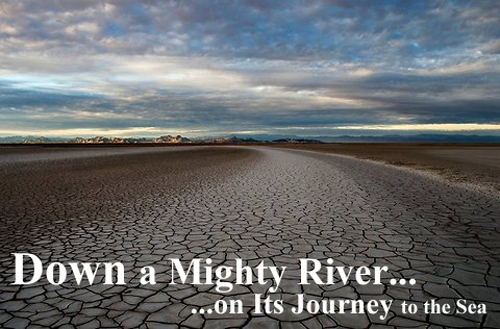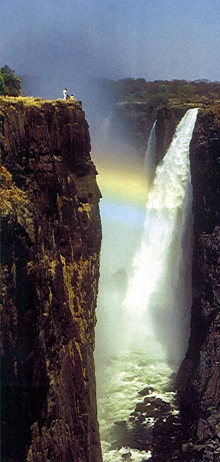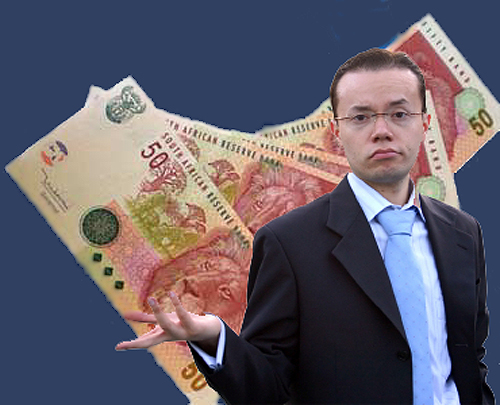 The photo above of the Colorado “river” as it meets the ocean is being used by African environmentalists to stop Botswana from its planned new take of Zambezi water for irrigation.
The photo above of the Colorado “river” as it meets the ocean is being used by African environmentalists to stop Botswana from its planned new take of Zambezi water for irrigation.
The Zambezi forms on the border between Namibia and Botswana, where a number of other large rivers like the Chobe and Kwando converge. These rivers are formed in the mountains of Angola after seasonal rains at the end of the year.
Geographically odd, the mountains of Angola are the continental divide for this part of Africa, meaning essentially that the western portion of the divide is hardly more than a quarter the width of the eastern portion. Which means that most water and all major rivers flow eastwards across a large section of Africa into the Indian Ocean.
Such is the Zambezi River, which after forming and leaving Namibia and Botswana, runs past Zimbabwe, Zambia, Malawi and finally, Mozambique.
And I’m sure you’ve heard of Victoria Falls, which is only 60k east of Botswana on the border between Zimbabwe and Zambia, where the then magnificent Zambezi tumbles over a mile-wide cataract forming one of the wonders of the world.
It’s a rather important tourist attraction.
Now Botswana has announced to the other countries downriver that it plans to extract a sizable amount of the Zambezi mostly for new irrigation projects.
Food, that is.
Which is exactly a part of the explanation for the Colorado running dry.
Now contrary to enthusiastic tourists who believe they can get up and go at any time to see Victoria Falls, that’s not the case. The Zambezi is an incredibly seasonal river. It never stops flowing, but its flow changes radically with the season.
In November, December and January, an extremely popular time for travel, as the waters are only just forming after the Angola rains, the flow is so small that people who view the falls then see mostly rock.
And by March when the flow is in full swing, the falls are so massive you can see hardly anything but mist.
The best time for viewing the falls is February, June, July and depending upon the water, August. That’s when the photographs were taken that first inspired you to view them.
And the eradicate flow of the Zambezi was so destruction to agriculture downriver from the falls, that years ago the massive Kariba Dam was built. Not only does it control about half the Zambezi’s length (from the middle of the continent to Indian Ocean) but it provides enormous electricity for the area.
So Botswana’s move, Botswana says, is not so radical after all.
But the Zimbabwean Minister of Water Resources Development and Management, Samuel Sipepa-Nkomo, is not so sure. He thinks the idea would be a “great threat” to downstream Zambezi communities. (Likely as great a threat as the current Zimbabwe government is to those communities.)
But try as it might have, the Zimbabwe government has been unable to effect the flow of Victoria Falls. This project will.
There would also be a benefit, if this extraction were accompanied by the building of a dam, which is also being suggested. The area is in dire need of more electricity.
It’s important to note this was long in coming. A Dartmouth University study predicted the impending conflict in 1998.
That study recommended that not just in Africa but everywhere that water is precious (like the Colorado) it should be proportionately paid for. In other words, if there are a 1000 cubic meters on average running through a checkpoint, then if projected use would take 10% of that, that government should pay 10% of what the water was valued.
I kind of doubt that will happen. It didn’t happen with the Colorado, where an elaborate inter-government agency lead by the EPA determines appropriate water use for the States.
A united Africa could also create such endeavors. But …
Meanwhile stay tuned for the altered best times to see the falls.

